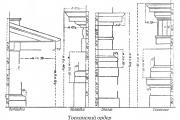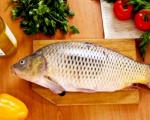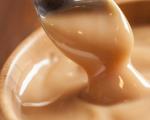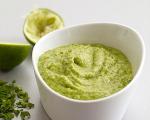Normally, the intestines contain up to 0.9 liters of gas, which is formed mainly as a result of the vital activity of microorganisms. Increased gas formation in the intestines is called flatulence and accompanies most diseases of the gastrointestinal tract. Men and women over the age of 50 suffer from prolonged flatulence with the same frequency. If there are errors in the diet, an occasional increase in gas formation is possible.
Why do gases form in the intestines?
The causes of flatulence are divided into several groups:
- insufficient or excessive amounts of certain substances in the diet (nutritional reasons);
- digestive (digestive) flatulence;
- dysbiotic causes;
- mechanical flatulence;
- dynamic reasons;
- circulatory flatulence;
- high altitude flatulence;
- dysphagia.
Each group of reasons has its own mechanism:

- Nutritional reasons are associated with the direct property of some foods, when digested in the intestines, to release large amounts of gases.
- Digestive mechanism flatulence. Due to a violation of the secretion of digestive enzymes, incomplete breakdown of food occurs and strong gas formation, even with a small intake of carbohydrates. This happens against the background of organ diseases digestive system, in which the production of digestive enzymes decreases ( chronic pancreatitis, enteritis).
- Dysbiotic causes. The small and large intestines contain a large number of microorganisms that are also involved in the digestion of food mass. But if the ratio of the number of bacteria is violated normal microflora(lactobacteria, bifidumbacteria) and opportunistic flora (peptostreptococcus, coli, anaerobes) digestion of food occurs with increased gas formation. This disorder is called dysbiosis.
- Mechanical flatulence. With normal digestion and gas formation in the intestines, its elimination is disrupted. In this case, intestinal tumors, helminths, and hard, rocky stools can serve as mechanical obstacles.
- Dynamic reasons associated with impaired innervation of the intestine and a decrease in its peristalsis (movements of the intestinal walls that push food masses). In this case, food stagnates, fermentation processes are activated, and gases accumulate.
- Circulatory flatulence– the process of impaired absorption of formed gases in the intestines with their neutralization in the liver.
- High altitude flatulence– an episodic condition when, when atmospheric pressure decreases in the intestines, excessive gas formation occurs (the effect of opening champagne).
- Dysphagia. Due to a malfunction nervous system(often after a stroke) swallowing of food is impaired, and a large amount of air is swallowed, which enters the stomach and intestines. Gases in the stomach can also form when they are thrown back from the intestines.
Increased gas formation in the intestines is caused by foods with high content carbohydrates and fiber: legumes (soybeans, peas, beans), cabbage, onions, pumpkin, potatoes. Carbohydrates that release gas when broken down are starch, raffinose, sucrose, sorbitol, lactose.
Symptoms of increased gas formation
Flatulence is characterized by local and general manifestations. Local symptoms are directly related to intestinal dysfunction, these include:
- abdominal pain - an increased volume of gas causes stretching of the intestinal walls, and a reflex spasm with the development of pain;
- bloating – an increase in the volume of the abdomen due to accumulated gas;
- rumbling in abdominal cavity– occurs due to mixing of gas with the liquid part of the intestinal contents;
- frequent belching - occurs with dysphagia and the return of gas from the stomach;
- diarrhea or constipation - these stool disorders are always accompanied by increased gas formation, and a tendency to loose stools often develops;
- nausea is the result of improper digestion and the content of toxins and products of incomplete breakdown of food in the intestines;
- flatulation is the release of gas from the rectum, accompanied by an unpleasant odor (hydrogen sulfide) and a feeling of discomfort; normally, episodes of flatulation occur on average up to 20 times a day.
General symptoms:
- burning sensation in the heart - occurs as a result of constriction vagus nerve swollen intestinal loops;
- increased heart rate;
- disturbances in the rhythm of the heart (arrhythmia);
- insomnia - caused by intoxication of the body due to partial absorption of gases from the intestines into the blood;
- mood disorder – tendency to depression, feeling of awkwardness;
- general malaise is the result of improper bowel function and incomplete absorption nutrients.
Diagnosis of the causes of flatulence
The fact of increased gas formation is established based on the above symptoms. To find out the causes of flatulence and adequate treatment, prescribe following methods diagnostics:
- coprogram – laboratory test feces, which allows us to judge the enzymatic deficiency of the digestive system;
- stool culture for dysbacteriosis– used to confirm an imbalance in the intestinal microflora;
- intestinal radiography With contrast agent(barium mixture) – makes it possible to visualize mechanical obstacles to the movement of food masses and gases in the intestines;
- fibroesophagogastroduodenoscopy (FEGDS)– using a special fiber optic tube with lighting and a camera, the mucous membrane of the gastrointestinal tract is examined; if necessary, it is possible to take a piece of tissue for histological examination (biopsy);
- colonoscopy- the principle is the same, the large intestine is examined.

X-ray of the intestine with contrast agent
How to get rid of gases in the intestines?
Treatment of increased gas formation begins only after it has been possible to find out its cause. The main goals of therapy are to eliminate the cause of gas formation, normalize intestinal function and eliminate symptoms. To combat the causes of flatulence, the following means are used:
- Diet correction. It is necessary to limit the consumption of products with increased content fiber and carbohydrates (legumes, cabbage, potatoes), sparkling water. Instead, it is advisable to consume foods not causing gas formation: low-fat varieties meat and poultry (beef, rabbit, chicken), dairy products(except for whole milk containing lactose), rice.
- Probiotics– preparations containing live bacteria of normal intestinal microflora (lactuvit, bifiform) to combat dysbiosis.
- Laxatives. They are used in the case of a mechanical block to the movement of food in the intestines. In case of a tumor, surgery is performed.
- Drugs that enhance intestinal motility(cerucal) are effective for dynamic flatulence.

To normalize intestinal function, the following means are used:
- enzymatic preparations- tablets that contain digestive enzymes, improve digestion of food (panzinorm, pancreatin, mezim), especially effective for pancreatitis and enteritis;
- sorbents– bind and remove toxins from the intestines (phosphalugel, enterosgel);
- defoamers- agents that reduce the surface tension of gases in the intestine and improve its absorption.
Symptomatic therapy is aimed at reducing pain, for which antispasmodics (no-spa, drotaverine) are used.
One of the most unpleasant phenomena One of the things that can happen to people in public is that they can't stop farting, or, more formally speaking, passing gas. When this happens, it is not only indecent, it is also an indicator that there is some kind of problem in the body at the moment. Farting once or, in vulgar terms, “farting” is still normal, but when the problem begins to occur too often, it is necessary to in detail figure out what to do about it.
Mechanisms underlying the problem
Although people usually call this problem nothing more than “farting” or “farting”, all of this has scientific names. “Blowing the winds” is based on two mechanisms:
How are gases formed?
A healthy body constantly contains a certain amount of gas, and quite a lot, something like a liter. Some enters the body from the outside when a person swallows air, which he does, for example, while eating or talking. But this, if considered in percentage, only a small part of general accumulation gases in the body. The largest volume is formed already inside, in the large intestine during digestive processes. It can be up to 75% of the total volume. For example, bacteria in the large intestine produce methane, fatty acid When they break down, they release carbon dioxide, legumes can release hydrogen, and so on. 
Diet-related reasons
To understand how to stop farting frequently or even constantly, you must first understand what causes excessive flatulence. And most often it’s about the food a person eats.
The main reason that a person begins to fart too often is the consumption of foods that provoke increased gas formation. These may include:
- Dairy products. They contain lactose, which most people cannot digest normally.
- Carbonated drinks. Kvass, beer, champagne, and also lemonades increase flatulence. It's all about the gases contained there, as well as the yeast. Lots of such drinks - and the situation gets worse.
- Legumes. Peas and similar products increase the amount of hydrogen produced during digestion, which makes the problem worse.
- Products with a lot of coarse fiber. Apples, brown bread, potatoes, cabbage, radishes, radishes and similar products, when consumed in excessively large quantities, can lead to increased gas formation.
- Products in incorrect combination. Sometimes individual foods, even if you eat a lot of them, may not cause any problems for a person, but in combination they can complicate the digestion process, causing the amount of gases released to increase significantly. This, for example, is white bread with soup, potatoes with sausages and a number of other equally negative combinations.
Other reasons

Self-remediation methods
When you know why farting may occur, you need to take measures to eliminate the problem and understand how to get rid of it. The easiest way to solve the problem is with aerophagia. Here is the treatment - you just need to change your eating behavior, stop talking while eating, eat food in smaller pieces and chew it better.
If the problem is that you eat one of the foods that makes you fart/fart due to the fact that it is not quite adequately accepted by your body, just reconsider your diet. Limit the consumption of those products that were indicated in the points above. Also try to reduce (but not completely eliminate) the amount of easily digestible carbohydrates, such as baked goods, sugar, and protein foods, such as lamb, goose, pork and mushrooms. Then the problem should gradually recede, you will stop farting so often.
Also try to get enough sleep, spend time physical activity and so on. Better your health means less chance of the problem getting worse and less need for treatment.
Other methods of elimination
However, sometimes it happens that you cannot stop farting on your own and get rid of it - sometimes the reason is a fairly serious gastrointestinal disease. This can usually be determined by the presence of side symptoms:
- blood in stool;
- nausea and vomiting;
- constipation and diarrhea;
- abdominal pain and other abnormalities.
In this case, it is necessary not to take any medications on your own, not to resort to treatment at home, but to go to a therapist or a gastroenterologist, who will prescribe an examination for you, and then treatment - you will take tablets for flatulence, other medications, or do therapeutic procedures to get rid of this problem.
But the main thing is not to panic if you start farting excessively. In a healthy adult, flatulence can occur up to 10-18 times a day, and therefore there is a chance that everything is fine with you and nothing needs to be done.
Education intestinal gases- a physiological process that normally does not cause much discomfort. Problems arise when it is too intense, causing painful bloating (flatulence) and reducing quality of life. Understanding the mechanism of gas formation in the intestines helps to avoid this - the reasons for how to get rid of painful symptoms and preventive measures became the topic of our conversation today.
Causes of flatulence
The mechanism of excessive gas production may be pathological (caused by a serious illness) or non-pathological:
| Non-pathological causes | Pathological causes |
|---|
aerophagia – swallowing a large volume of air during fast food, talking, smoking;
consumption of highly carbonated drinks;
the presence of foods in the diet, causing fermentation in the gastrointestinal tract (whole milk, beans, cabbage, apples, black bread);
inactive lifestyle. | imbalance intestinal microflora;
insufficient secretion or rapid destruction of enzymes;
poor absorption of gases from the intestines due to local violation blood circulation;
insufficient intestinal motility;
tumors, adhesions, accumulation of dense stool and other obstructions inside the intestines. |
Flatulence caused by non-pathological processes can be easily eliminated. If excessive gas formation is caused by a disease of the gastrointestinal tract (gastrointestinal tract), it is required competent diagnostics And A complex approach to treatment.
What diseases does it indicate?

If the symptoms of excess gas formation are not associated with eating habits, lifestyle or aerophagia, they may indicate the presence of the following pathologies:
- dysbacteriosis;
- pancreatitis;
- hepatitis, cirrhosis, bile outflow disorders;
- chronic constipation;
- ulcerative lesions of the stomach and intestines;
- inflammation in the intestines (colitis, enteritis);
- peritonitis;
- portal hypertension ( high blood pressure in the hepatic and inferior vena cava);
- intestinal obstruction;
- haemorrhoids;
- appendicitis;
- helminthiasis;
- intestinal infections;
- neoplasms in the intestines;
- hormonal dysfunctions;
- impaired absorption of glucose and galactose;
- celiac disease (gluten intolerance).
According to medical statistics, excessive gas formation accompanies 85% of pathologies of the digestive system.
Symptoms of gas formation in the intestines

The process of active formation of gases inside the intestines is accompanied by the following symptoms:
- gurgling in the stomach;
- feeling of fullness and bloating;
- frequent and abundant flatus - release of gases from lower section large intestine.
At severe bloating Spasms and colic often occur in the lower abdomen, caused by overstretching of the intestinal walls. Acute flatulence may be accompanied by a feeling of nausea, weakness, stomach pain, and belching with an unpleasant odor. If increased gas formation appears as a result of any disease, the picture is complemented by the symptoms of this pathology.
Flatulence is bloating and increased gas formation in the intestines. The cause of this disorder in healthy people may be the specific diet or a tendency to constipation: incoming food is retained in the intestines, causing putrefactive processes, producing gases. Abundant gas formation may indicate the development of the disease.
Physiological processes associated with gas formation
In the intestines healthy person contains about 200 milliliters of gases. And about 20 liters of them circulate in the body per day:
- These are gases that are formed as a result of the breakdown of food in the intestines ─ hydrogen, methane, as well as some nitrogen and sulfur compounds (they have bad smell). About 75% of them are produced.
- It is carbon monoxide produced by the reaction Gastric acid and pancreatic juice of the pancreas.
- This is air that enters the body when swallowed and enters the intestines through the blood.
The removal of gases from the body is carried out through the rectum (passage of flatulence), belching, its entry into the blood and with exhaled air. The direction of dispersion (exchange) of gases is determined depending on muscle tone diaphragm and abdominal wall, from motor activity intestines. High density feces, metabolic dysfunction makes it difficult to disseminate in the blood. This forms large accumulations of gases.
The volume of gases and the frequency of their release in healthy people is individual. Natural and normal amount Flatulence passages are considered to range from 13 to 21 times a day. This is not flatulence, but a natural physiological process.
Causes
Predisposition to flatulence is explained by differences in the composition of the microflora. The reasons that provoke flatulence may be the following:
- violation of nutrition rules;
- violation of digestive processes, dysbacteriosis;
- predominance of gas-forming bacteria;
- disturbance of motor activity of the gastrointestinal tract;
- mechanical disorders of intestinal excretory function;
- increased pressure in the intestines during ascent to altitude;
- disorders of the emotional and mental state.
The occurrence of flatulence is facilitated by eating foods with a high gas-forming potential:
Increased gas formation is caused by nutrition fatty foods; diet 1 ─ 2 times a day in large portions, which causes increased stress on the stomach and colon.
In case of digestive disorders, flatulence is observed in patients with enzymatic deficiency, impaired intestinal-hepatic circulation bile acids, at . With deterioration of intestinal motor activity, flatulence is characteristic of aerophagia (swallowing large portions of air), intoxication, scleroderma (connective tissue disease), surgical interventions. The development of aerophagia is facilitated by rushing during meals, talking while eating, smoking, drinking carbonated drinks, chewing gum, candy, and poorly fitted dentures. Aerophagia manifests itself in anxious state, with tics, hysterical neurosis.
Symptoms
Clinical signs of flatulence are quite pronounced:
- increased release of gases;
- increase in abdominal volume, bloating;
- belching;
- pain in the abdominal area.
Bloating gives a feeling that it is bursting, it is increasing in volume, clothes are too tight, and there is rumbling. The patient occasionally feels dull or aching pain V different places abdominal cavity without a clear location. With gas colic, painful attacks are cramping. The pain goes away after a passage of flatulence.
Flatulence also causes the following disorders: feeling of nausea, bad breath, diarrhea or stool retention, lack of appetite.
Treatment
The variety of factors influencing the occurrence of flatulence is the main problem in the treatment of this disorder. If the leading cause of flatulence is nutrition, diet is the basis of treatment. It is necessary to eat foods with low gas-forming potential: white rice, bananas, citrus fruit, hard cheeses, white meat, eggs, non-carbonated drinks, yogurt. To find out individual reaction the body's consumption of food products, trial elimination diets are carried out ─ one-by-one exclusion of “suspicious” foods. Listen carefully to your own body's reaction to different combinations of foods.
With aerophagia, treatment of flatulence will be successful if you get rid of bad habits:
- Do not eat quickly, avoid talking while eating.
- Refuse chewing gum, lollipops. Do not drink through a straw. Eliminate carbonated drinks and beer from your diet.
- Smoking less.
- Consume sugar-containing foods, fruits and juices from them 2 to 3 hours after eating protein foods, and preferably 30 minutes before meals.
If the cause of flatulence is illness, treatment involves the use of comprehensive measures aimed at recovery or alleviation of the pathology, relieving its symptoms.
Drugs for the treatment of flatulence:
- Enterosorbents – enterosgel, diosmectite, activated carbon, polyphepan. Drugs in this group bind and remove harmful substances and toxins from the body, which increase the production of gases.
- Defoamers ─ drugs based on simethicone. A large number of Gas bubbles in a liquid form foam. The action of these drugs is based on reducing the surface tension of the gas bubble.
- Non-pancreatic enzymes that facilitate the digestion of carbohydrates.
- Non-absorbable antibiotics ─ rifaximin. Medicine excreted unchanged in feces, its concentration in the blood does not increase.
The drug Espumisan (simethicone) effectively eliminates flatulence. It prevents the formation of bubbles, destroys them, and also eliminates belching and bloating. The medicine can be taken by diabetics and patients with digestive disorders. Espumisan acts locally and is completely excreted in the feces. The medicine is safe and can be used long-term.
Carminatives help treat flatulence:
- fruits of dill, fennel;
- collecting equal parts of fennel fruits, peppermint leaves and valerian root; it also has an antispasmodic effect;
- cumin seeds.
Flatulence is common but little studied. One of the pressing questions is to determine whether gas formation is really excessive or simply abnormal intestinal sensitivity causes discomfort to a person.
The normal process of digestion occurs with the obligatory formation of gas in the stomach. If it exceeds one liter, then bloating appears. Naturally, gases need to be eliminated, which happens through flatulence, or in common parlance – by farting. The problem of flatulence occurs relatively often in children.
Increased gas formation appears due to many physiological and pathological processes in a stomach. Physiological gas formation accompanies normal digestion as a result of eating difficult-to-digest foods. Pathological occurs due to:
- dysbacteriosis;
- stomach ulcers;
- gastritis;
- esophagitis;
- inflammation of the pancreas;
- hepatitis A;
- helminthic infestation;
- constipation;
- intestinal tumors;
- infectious diseases;
- in women with pathology of the reproductive system;
- decreased thyroid function;
- enzymatic disorders;
- intestinal inflammation;
- intestinal diverticulosis;
- recovery period after abdominal surgery;
- neurological disorders.

In young children, the stomach most often swells in the following cases:
- feeding disorders in newborns;
- the first days of adaptation to breastfeeding;
- congenital intestinal dysfunctions in infants;
- abnormalities in the development of the digestive tube;
- non-compliance with the diet of a nursing mother;
- basic overfeeding if the child is on artificial nutrition;
- transferring the newborn to additional formula;
- intestinal dysbiosis in a child;
- enzymatic disorders;
- constipation in newborns;
- in older children - with helminthiasis, nervous overstrain, consumption of harmful products.
1. Gas formation in adults directly depends on the method of nutrition, its regularity and the nature of the food eaten. Alcohol, smoking, drinking sweet carbonated drinks - all this leads to disruption of the enzymatic apparatus of the digestive system and the occurrence of flatulence.
2. Chronic inflammatory diseases stomach and intestines significantly slow down the process of breakdown and absorption of food. With these diseases, the passage of contents from the stomach is inhibited and peristalsis is reduced. As a result, gas formation increases significantly and a person experiences bloating.
3. The incompatibility of certain foods often causes your stomach to swell. Concomitant use coarse fiber and milk leads to severe flatulence.
4. For dysbacteriosis and infectious diseases normal microflora is replaced by pathological one. Fermentation and putrefactive reactions begin to predominate, which is accompanied by bloating.
5. Hepatitis and pancreatitis contribute to increased gas formation due to insufficiently efficient production of enzymes. The breakdown of products is difficult, the residues dietary fiber succumb to fermentation with excessive release of gases, intestinal loops become over-inflated, which is manifested by farting and stool disturbances.

6. Flatulence is one of the most common problems in the first few months of life. Increased gas formation in newborns is caused by both anatomical and adaptogenic processes. The baby's enzymatic system normalizes its activity only by 6 months, so this period is accompanied by abundant gas formation and frequent farting.
7. Helminthiases in children of primary and school age become causes of both mechanical and chemical delays in digestion. Digestion slows down, food is not absorbed and the child’s stomach begins to swell.
Features of therapy: how to stop farting?
Treatment for bloating depends entirely on the cause of the gas. You can do massages at home, cleansing enemas, warm baths. Drug treatment flatulence is carried out only as prescribed by a doctor.

Excessive gas formation can be cured by prescribing:
- Drugs to normalize intestinal microbiosis.
- Diets.
- Medicines to reduce gas formation and facilitate gas release.
1. If the cause of flatulence is dysbiosis, then in this case treatment with prebiotics is indicated. They are most often available in capsule form and are prescribed at least 40 minutes before meals. Similar medications include: Bactisuptil, Enterol, Linex. Enterozermina and Hilak Forte are available in liquid form. Such drugs as Bifikol, Bifiliz, Bifidumbacterin require special storage and are subject to a separate preparation method. Using these remedies for about 2 weeks, you can cure intestinal microflora disorders.
2. Problems enzymatic activity are resolved by using Creon, Mezim-Forte, Festal, Pepfiz. These drugs improve the process of digestion and absorption of nutrients, which significantly reduces gas formation.
3. Adsorbents – contribute to the absorption of gas bubbles and their easier removal. Such drugs include Smecta, activated carbon tablets, Carbolong, Sorbex capsules.
4. Defoamers - reduce the surface tension of the formed fine gases, precipitate them, accelerate their removal through anus. This group includes tablets Espumisan, Disphatil, Zeolate. These substances are not absorbed gastrointestinal tract and do no harm.
5. If peristalsis is impaired, the tablets of Cerucal, Motilium, and Domperidone will help to establish the passage of intestinal contents.

6. What to do if your baby’s stomach is swollen, the pediatrician will advise. Carminative drops, tinctures, teas and decoctions are usually prescribed. Abdominal massage and the use of a gas outlet tube give good results. When a baby's belly is constantly swollen and he farts frequently, it is difficult to treat the disease without medication. There are drops of Espumisan baby, Sab complex, Smecta, Bobotik. From aids lactulose, No-shpu, Plantex are prescribed. Sometimes children can be given enemas with antispasmodics, the stomach decreases significantly in size, the child’s pain goes away and he calms down.
Tablets for the treatment of flatulence are used in older children. They are also given anthelmintic therapy in combination with restoration of microflora.

Folk remedies
Tablets, capsules, and enterogels are not suitable for treatment for everyone. Decoctions, various mixtures, and infusions are practically harmless and effective. Fennel, dill and carrot seeds have good carminative and antispasmodic properties.
- Crushed cumin or dill seeds (about 3 teaspoons) pour 2 tbsp. boiling water Cover the container with a lid and leave in a warm place for 2 hours. Drink ¼ glass of the infusion several times a day.
- Take 2 teaspoons of parsley and dill seeds, pour 200 ml of boiling water and leave overnight in a warm place. The infusion is quite strong, so take 2 tbsp. spoons every 30-40 minutes.
Herbal remedies can also help treat the problem of gas formation in the stomach:
- Mix 1 tbsp. spoons of dandelion and nettle rhizomes, 2 tbsp. l valerian roots, buckthorn bark. From this mixture, pour 2 tablespoons into 0.5 liters of boiling water and heat in a water bath for half an hour. Take 100 ml for flatulence.
- Chamomile has a good anti-inflammatory effect. Pour 2 teaspoons of crushed chamomile flowers and oregano herb into a glass of boiling water. Leave for 40 minutes, strain and take 50 ml 3 times a day.

You can also make tinctures from leaves of mint, calamus, dill, and lemon balm. For infants Unsweetened teas with the addition of fennel are produced. In cases where flatulence is accompanied severe pain in a stomach, high temperature, vomiting, nausea, stool retention or the presence of blood in the stool - you should immediately consult a doctor.
Diet
Without proper diet adjustments, it is difficult to achieve good results. Should be excluded:
- legumes;
- coarse fibrous vegetables;
- fresh milk;
- fresh sweet pastries;
- carbonated drinks;
- radish, radish;
- black bread.
It is also necessary to limit spicy, sour and sweet foods. Flatulence needs to be treated in a comprehensive manner, so in the morning it would be a good idea to do gymnastics involving abdominal muscle groups.





























